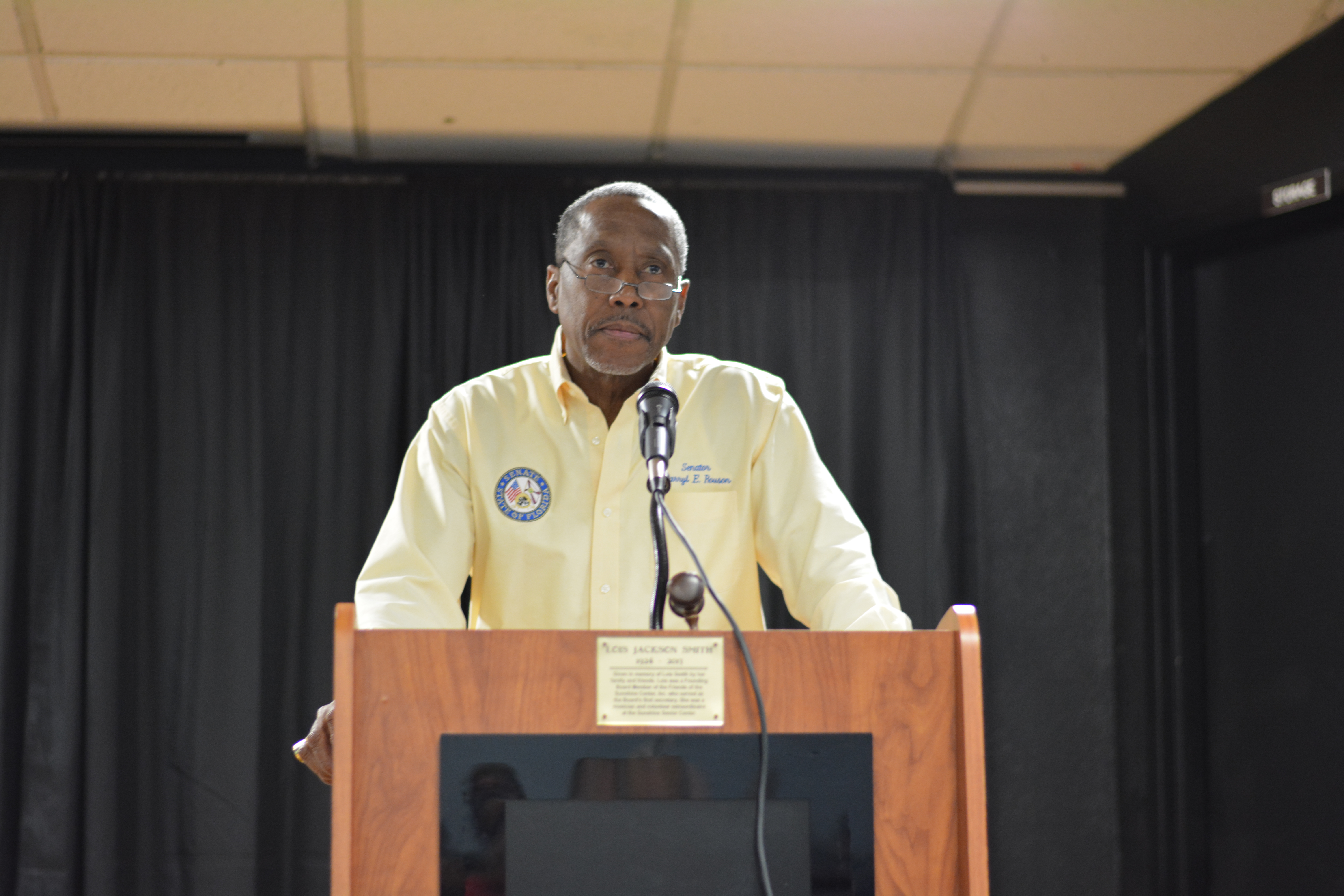Above photo: State Sen. Darryl Rouson, D-St. Petersburg, led a town hall Friday evening to allow St. Petersburg locals to voice their concerns regarding House Bill 423. Emily Wunderlich | The Crow’s Nest
By Whitney Elfstrom
Community members and representatives came together Friday evening to discuss their opposition to House Bill 423 at the USF consolidation town hall.
State Sen. Darryl Rouson, D-St. Petersburg arranged the hall with Rep. Ben Diamond, D-St. Petersburg, to give a platform to the community, which he said “should have been done before the bills were filled.”
“A consolidation plan sprung from the Legislature without critical complicity from the academics, without substantive input from the most important people in the dynamic — the students — and without real community involvement,” said Rouson.
The consensus among attendees was that a study must be conducted to further understand the impact that losing separate accreditation would have on USF St. Petersburg.
Bob Warchola, the volunteer leader of the public policy council in the St. Petersburg Area Chamber of Commerce, said that there needs to be a pause and that an independent study needs to be conducted with full community participation before a decision on HB 423 is made.
Warchola isn’t the only person to call for a study to be conducted.
In a Feb. 1 resolution headed by St. Petersburg City Council member Ed Montanari, the council called for a study to “be funded and performed to ensure the most successful future for current and future USF St. Petersburg students, faculty, and potential impacts to our local community and our regional economy.”
Christopher Steinocher, president and CEO of the St. Petersburg Area of Commerce, echoed this belief saying that he does not understand the rush in the timeline at hand and stating that the chamber asks for “a delay, some thoughtfulness and a pause” before moving forward with the bill.
Mike Killenberg, founder of the journalism department at USF St. Petersburg, worried that if the bill were to pass the university would once again fall under “a distant regime” which would cause the university to diminish and decline.
“There is nothing positive in this. It’s not going to give [USF St. Petersburg] more money, it’s not going to give them more power,” said Robert Ryan Carter, of the chamber of commerce. “It’s going to give Tampa the power, it’s going to give Tampa the money and it’s going to remove any positive from our local programs.”
Some speakers noted the six leadership changes at USF St. Petersburg under the thumb of USF System President Judy Genshaft, with the ousting of Sophia Wisniewska in September 2017 being the most recent.
Former City Council member Karl Nurse mentioned that he had a close view when Bill Heller was demoted from campus dean to professor in 2002. He said that there was always an effort by the campus leadership to grow the campus which caused an underlying struggle.
Jay Sokolovsky, an anthropology professor at USF St. Petersburg, mirrored Nurse’s statement about the consistent change in leadership.
“I regard this as part of the continuation of the firing of heads of our campus who push [growth] forward,” he said. “Certainly Bill Heller was fired because of his attempt to do that and I think we now know that the president knew about this possibility in October. I see this as part of the effort to push this forward by first firing Sophia and then moving ahead with a weakened campus to do that.”
Rouson assured the crowd that he and Diamond will work to come up with a “plan of action” that respects the St. Petersburg community.
“I reject the notion that things can’t change,” Rouson said. “By your presence here today you certainly indicate that you’re supportive of a pause, a delay, a study and coming to an understanding of a full implication of what consolidation means.”



